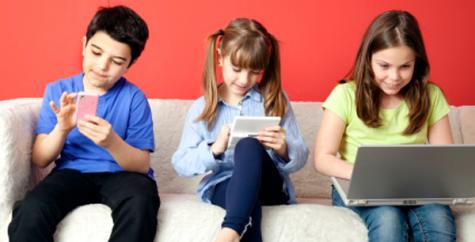The Prime Minister, Julia Gillard, today announced the rollout of a national cyber safety education program known as bCyberwise, developed by Life Education and McAfee, to help educate schools, teachers, parents and children about cyber safety. Ms Gillard also released updated guidelines on socialising online for adults and children.
Speaking at the launch, the Prime Minister said that the digital age – which will be enhanced through the introduction of the National Broadband Network – gives Australia significant transformative opportunities.
“It's giving us an opportunity to transform education … so kids in school can get the best of curriculum around the world. They can hook into the best teaching around the world. They can leave school having developed friendships with children in Japan or Korea or China.
“They can use that online experience to help them learn a language in our region.”
But as with any opportunity comes challenges and risks, and the Prime Minister said cyber safety is one of the key concerns of parents of the digital generation.
Ms Gillard said that, just as safety and security is always an issue for governments, cyber safety is no different.
“We have taught our kids generation after generation about how to be streetwise and how to face up to stranger danger.
“Now we've got to teach our kids about new dangers in a new environment in the cyber world.”
The difference in today’s world is that cyber bullying doesn’t just leave at the school gate as the traditional physical bully did in past generations. Ms Gillard said parents worry about the impact of cyber bullying and the possibility of online predators.
Life Education has partnered with schools, teachers and parents for more than 30 years to help prepare children for safe and healthy choices.
The bCyberwise program will be offered to 600,000 year 3 and 4 students in 3,500 primary schools from this year and help children’s online experiences be safe, respectful and constructive. The program has been developed by leading educators and involves a mobile learning centre, a talking giraffe, videos, problem-solving, role play and discussion about responsible online behaviour, cyber safety and cyber security.
The year 3 and 4 age groups were selected on the basis that children needed to be educated in their formative years to adopt safe online practices.
According to the CEO of McAfee, Andrew Littleproud, research showed that teenagers are spending more time than ever before online and this is only expected to increase. He added that almost 6% of the teenagers surveyed have met up with strangers encountered online.
“The launch of bCyberwise is a great step forward in helping to raise awareness on cyber safety,” Mr Littleproud said.
In releasing the guidelines for socialising online, Ms Gillard said that the anonymity offered by some social media was another avenue for bullying and harsh treatment of both young people and adults.
“Through social media, we've seen some of the pressures that can be brought to bear by an environment in which unfortunately people with the benefit of anonymity sometimes say the cruellest and harshest things things to each other.”
Ms Gillard said that companies including Facebook, Google, Yahoo! and Microsoft have committed to the guidelines and protocols about acceptable use. She also called on Twitter, as one of the key means by which ‘trolling’ or bullying takes place to join the other industry heavyweights.
“We need to see Twitter also agreeing to use these protocols and guidelines because it is on Twitter that so much of the damage has been done.”
The Deputy Leader of the Opposition, Julie Bishop, recently revealed that Twitter is soon to set up an office in Australia for the first time as a means of improving its government and corporate relations in Australia.
Take a look at the online socialising guidelines here.



















__small.png)










